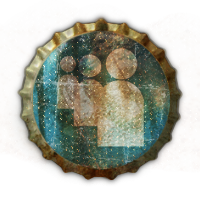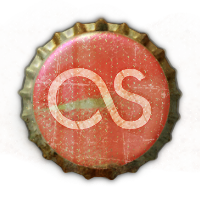丸に梅鉢(まるにうめばち)
この商品は、家紋入れ対象商品と同時購入してください。家紋入れ対象外商品や単品でのご購入は無効となりますのでご了承ください。
【家紋入れ対象商品】【楽ギフ_のし】【楽ギフ_のし宛書】【楽ギフ_包装】【楽ギフ_名入れ】雛人形と五月人形こいのぼり【鯉のぼり】
この商品は、家紋入れ対象商品と同時購入してください。家紋入れ対象外商品や単品でのご購入は無効となりますのでご了承ください。
【家紋入れ対象商品】【楽ギフ_のし】【楽ギフ_のし宛書】【楽ギフ_包装】【楽ギフ_名入れ】雛人形と五月人形こいのぼり【鯉のぼり】
ショッピング2014年03月05日
【即決】Peach sisters 全2巻 あのコの秘密 小島美帆子
【Yahooオークション】
[[オークション終了時間]]2014-03-06T07:57:27+09:00
【オークションID】
ID番号:176269486
【オークション名称】
Title:【即決】Peach sisters 全2巻 あのコの秘密 小島美帆子

「記事引用」
2014年03月05日 03時 水曜日feat. D.O R 続き>>
【即決】Peach sisters 全2巻 あのコの秘密 小島美帆子
【Yahooオークション】
[[オークション終了時間]]2014-03-06T07:57:27+09:00
【オークションID】
ID番号:176269486
【オークション名称】
Title:【即決】Peach sisters 全2巻 あのコの秘密 小島美帆子

「記事引用」
2014年03月05日 03時 水曜日feat. D.O R 続き>>
こちら2014年03月04日
Children's Books: Every Child is Special (ADHD Children Books)
The aim of the book is to demonstrate for children how to express their difficulties, needs and preferences; and to help those around them — parents, analysts, therapists and teachers — to find ways to listen to and assist these children.
To be a special needs child
Is to be alone
Before teachers
Before parents
Before friends
Before analysts
Before therapists
Who only want to prove
How smart they are
And how hard it is for me.
Do they really know this
Better than I do?
Dr. Tzipi Mack
Lecturer, therapist and analyst specializing in learning disabilities. Trainer of educators and didactic
analysts in Herzog Teachers’ College, Lifshitz College of Education and Jerusalem College (Michlala).
Pedagogical advisor in the Makbilit Institute in Jerusalem and Efrat. Director of private clinic for didactic
counseling and analysis.

キャッチコピー引用
2014年03月04日 06時 火曜日feat. D.O Normal 続き>>
Children's Books: Every Child is Special (ADHD Children Books)
The aim of the book is to demonstrate for children how to express their difficulties, needs and preferences; and to help those around them — parents, analysts, therapists and teachers — to find ways to listen to and assist these children.
To be a special needs child
Is to be alone
Before teachers
Before parents
Before friends
Before analysts
Before therapists
Who only want to prove
How smart they are
And how hard it is for me.
Do they really know this
Better than I do?
Dr. Tzipi Mack
Lecturer, therapist and analyst specializing in learning disabilities. Trainer of educators and didactic
analysts in Herzog Teachers’ College, Lifshitz College of Education and Jerusalem College (Michlala).
Pedagogical advisor in the Makbilit Institute in Jerusalem and Efrat. Director of private clinic for didactic
counseling and analysis.

キャッチコピー引用
2014年03月04日 06時 火曜日feat. D.O Normal 続き>>
2014/03/04データアイテム
Little Australian Pony Girl
'The ponies on our farm all get new rugs and shoes long before the people get any new clothes!' so said eight year old Emily to her mother. She was quite right, of course.
Little Australian Pony Girl is the true story about an Australian childhood, where animals and hard work come first and people take second place.
Emily is the third generation of a family whose lives have been bound up in animals, especially horses, in different parts of Australia. With one grandfather a professional horse breaker and race horse trainer, her father a professional jockey at sixteen years old and a mother whose teenage years were spent on horseback, it is not suprising that Emily can never recall a time when she could not ride.
This fascinating tale is told by young Emily and moves through the amazing range of happenings that make up both her life, and the life of her family. Horses and ponies may play the major role in Emily’s life but it is by no means a one sided childhood. Emily is a musical child who plays the flute, taking weekly lessons. Like her mother and grandmother, she sews, knits, and enjoys craft work.
Emily's young life touches on a wide range of people and places. We see her at home on the family farm, learning that animals mean hard work and always come before people; she takes us to the North Queensland property of Rocking Vee which is owned by her grandparents; we hear all about her first meeting with Dodo the donkey; she tells us how the wild brumby horses of North Queensland became part of her father's own childhood; we learn of the family involvement in Riding for the Disabled; we can see Emily's delight in a father who was once a professional jockey shining through two chapters; there is the pleasure of a newly born foal and the joys of training him for his first show; the list goes on and on and it is hard to believe how much has been packed into Emily's short life.
To many people, this is the sort of life that only happens in story books. I have lost count of the number of times people have approached me whilst I was holding a horse or pony and asked if their children could come closer: these children had never even seen a real live horse or pony.
From sheep to saddles; rodeos to racing; brumbies to bridles; ponies to places: this is an Australian childhood at its best. Unfortunately, the type of childhood portrayed in Little Australian Pony Girl, is becoming an increasing rarity in our rapidly changing country of today.

内容引用
2014年03月04日 01時 火曜日feat. D.O フェニックス 続き>>
Little Australian Pony Girl
'The ponies on our farm all get new rugs and shoes long before the people get any new clothes!' so said eight year old Emily to her mother. She was quite right, of course.
Little Australian Pony Girl is the true story about an Australian childhood, where animals and hard work come first and people take second place.
Emily is the third generation of a family whose lives have been bound up in animals, especially horses, in different parts of Australia. With one grandfather a professional horse breaker and race horse trainer, her father a professional jockey at sixteen years old and a mother whose teenage years were spent on horseback, it is not suprising that Emily can never recall a time when she could not ride.
This fascinating tale is told by young Emily and moves through the amazing range of happenings that make up both her life, and the life of her family. Horses and ponies may play the major role in Emily’s life but it is by no means a one sided childhood. Emily is a musical child who plays the flute, taking weekly lessons. Like her mother and grandmother, she sews, knits, and enjoys craft work.
Emily's young life touches on a wide range of people and places. We see her at home on the family farm, learning that animals mean hard work and always come before people; she takes us to the North Queensland property of Rocking Vee which is owned by her grandparents; we hear all about her first meeting with Dodo the donkey; she tells us how the wild brumby horses of North Queensland became part of her father's own childhood; we learn of the family involvement in Riding for the Disabled; we can see Emily's delight in a father who was once a professional jockey shining through two chapters; there is the pleasure of a newly born foal and the joys of training him for his first show; the list goes on and on and it is hard to believe how much has been packed into Emily's short life.
To many people, this is the sort of life that only happens in story books. I have lost count of the number of times people have approached me whilst I was holding a horse or pony and asked if their children could come closer: these children had never even seen a real live horse or pony.
From sheep to saddles; rodeos to racing; brumbies to bridles; ponies to places: this is an Australian childhood at its best. Unfortunately, the type of childhood portrayed in Little Australian Pony Girl, is becoming an increasing rarity in our rapidly changing country of today.

内容引用
2014年03月04日 01時 火曜日feat. D.O フェニックス 続き>>
カレンダー
フリーエリア
最新コメント
最新記事
(05/11)
(05/11)
(05/11)
(05/10)
(05/10)
プロフィール
HN:
sihobisa03
性別:
非公開
ブログ内検索
最古記事
(11/13)
(11/14)
(11/14)
(11/14)
(11/14)
P R








